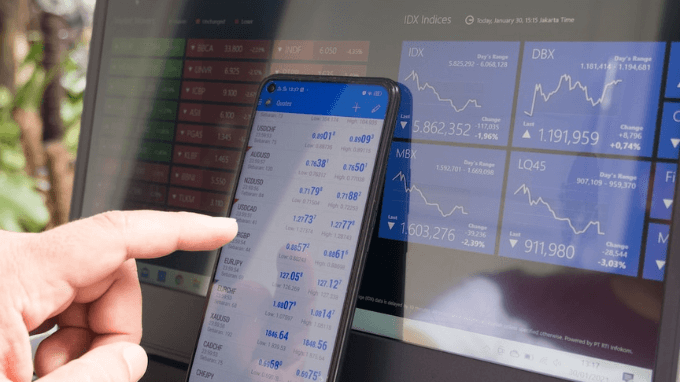In the dynamic realm of trading, individuals have the opportunity to seize favorable prospects amid the ever-changing landscape of the market. However, this environment also harbors risks, particularly for traders who may lack the necessary market insights and technical expertise to navigate their trading endeavors securely. This all-encompassing piece delves into prevalent trading scams, elucidates the psychology underpinning them, and furnishes indispensable advice on steering clear of potential pitfalls. By gaining insights into common scam tactics and adhering to the guidance presented within this article, you can fortify your defenses against fraudulent schemes, empowering yourself to evolve into a more discerning and knowledgeable trader.
Common Trading Scams
Ponzi Schemes: A Mirage of Profits
In the treacherous realm of trading, Ponzi schemes stand as one of the most deceitful tactics. Fraudulent operators entice investors with promises of high returns, creating a façade of profitability. Yet, the reality is a house of cards, relying on an influx of new investors to sustain payouts until the inevitable collapse, leaving many with substantial financial losses.
Pump and Dump: Orchestrated Market Manipulation
The pump-and-dump scheme, especially rampant in the cryptocurrency domain, involves artificially inflating asset prices through false information. Once the price soars, fraudsters profit by selling off their shares, leaving unsuspecting investors with worthless assets.
Fake Trading Systems: The Illusion of Automated Profits
Scammers peddle automated trading systems with guarantees of profits, preying on both novice and experienced traders. These systems, requiring upfront payments, seldom deliver promised results, leading to substantial losses for those who fall prey.
Fake Trading Advisory Services: A Web of Deception
Deceptive individuals or organizations pose as reputable trading advisors, offering personalized advice and fund management. However, these advisory services often prove fraudulent, inflicting poor decisions, excessive costs, and fabricated promises on unsuspecting clients.
Signal Selling Scams: The Mirage of Profitable Insights
Scammers tout accurate and profitable trading signals for a fee, using persuasive marketing and fake testimonials. Yet, these signals are typically worthless, resulting in losses for trusting traders lured into their schemes.
Binary Options Scams: High-Risk Deception
Binary options platforms manipulate prices and deny withdrawals, robbing investors of their funds. Regulatory crackdowns in numerous countries underscore the high-risk nature of these financial instruments.
Phishing and Identity Theft: Stealthy Attacks
Phishing tactics, such as fake emails and websites, aim to extract personal and financial information. Awareness is the key to thwarting these attacks, protecting traders from identity theft and fraud.
Psychological Tactics Deployed by Scammers
Greed: The Allure of Quick Profits
Many scams exploit the desire for quick and substantial profits, tempting victims with get-rich-quick schemes that often lead to financial ruin.
Fear of Missing Out (FOMO): Creating False Urgency
Scammers instill a sense of urgency, claiming limited-time investment opportunities or the illusion that others are already profiting, leveraging the fear of missing out.
Trust: The Elaborate Deception
Fraudsters establish trust through fake testimonials, false endorsements, and convincing websites, making potential victims more susceptible to their schemes.
Social Proof: Joining the Illusory Bandwagon
By claiming widespread investments and profits, scammers create an illusion of safety, coaxing individuals into joining the apparent success.
Lack of Knowledge: Exploiting the Uninformed
Many victims lack knowledge about financial markets, and scammers exploit this by providing simplistic explanations without revealing risks, and promising easy profits.
Shielding Yourself from Trading Scams: Proactive Measures
Conduct Due Diligence: Knowledge is Power
Before investing, meticulously research platforms, brokers, or investment firms. Verify licenses and regulatory approvals, ensuring the credibility of the entities involved.
Avoid High-Pressure Sales Tactics: Caution is Paramount
Stay vigilant against high-pressure tactics. Legitimate brokers never force immediate decisions, allowing you the time to make informed choices.
Be Wary of Unrealistic Returns: A Red Flag
If an investment promises returns too good to be true, exercise caution. Legitimate investments carry inherent risks, and guaranteed profits are a telltale sign of potential scams.
Use Reputable Brokers: Building Trust
Trade with well-regulated brokers, scrutinizing their history, leadership, and user reviews. Opt for credibility and security when choosing your trading platform.
Protect Personal Information: Guarding Your Identity
Never share sensitive information with unknown parties or suspicious websites. Use strong passwords and enable two-factor authentication to bolster account security.
Stay Informed: The Power of Knowledge
Keep abreast of financial news and market trends. This awareness enables you to identify inconsistencies and red flags in potential investment opportunities.
Report Suspicious Activity: A Collective Responsibility
If you encounter a potential scam, report it promptly to local authorities and regulatory agencies. Timely reporting plays a crucial role in preventing others from falling victim.
Frequently Asked Questions
Q: Is day trading a scam?
A: No, day trading is a legitimate strategy to capture market opportunities within a day.
Q: How to avoid forex scams?
A: Choose regulated brokers, be wary of guaranteed profits, avoid high-pressure tactics, and make decisions with complete information.
Q: I suspect that I’m being scammed. What can I do?
A: Cease transactions, contact your financial institution, report to authorities, and seek legal advice. Trust your instincts and safeguard your personal information.

